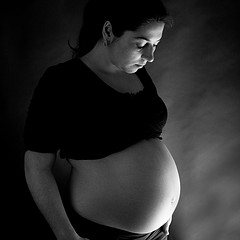The Reality of Postpartum Depression
Being pregnant is a time of wonder and joy but it is also a time of anxiety and fear, but understanding the postpartum depression risks and diagnosis can help assuage those fears and let you enjoy this wondrous time.
Known for a long time as the “baby blues” and dismissed as a nonsensical condition, postpartum depression is considered by today’s medical community to be a very real and potentially dangerous condition. When women give birth their hormones suddenly shift and revert back to pre-pregnancy levels very quickly. This rapid shift in hormones can result in mood swings and crying. These effects generally wear off within a few days. For some mothers, however, the feelings of despair, sadness and depression don’t dissipate and they fall into a state called postpartum depression.

Causes for Postpartum Depression
There is no single cause of postpartum depression, though there are some common factors that can indicate if a woman is more at risk for suffering this condition. Fatigue and mood swings, when coupled with sleep deprivation can often trigger this form of depression. A woman’s postpartum emotional state is also a key factor; believing that she’s unattractive, anxious about handling a newborn, feelings of being out of control and overwhelmed can all lead to postpartum depression.
Women who are faced with newborn babies as well as financial difficulties, lack of support from the spouse or family, juggling other children and trying to balance work, home and family can also lead to postpartum depression.
It is not yet clear if some women may be more genetically prone to postpartum depression or if hereditary factors may increase their risk. A woman’s risk of getting postpartum depression increases if she has a history of depression, has had postpartum depression with previous pregnancies, if she’s suffered great stress during the pregnancy such as relationship issues, illness or job issues, if the pregnancy was unplanned or if she is facing financial problems.